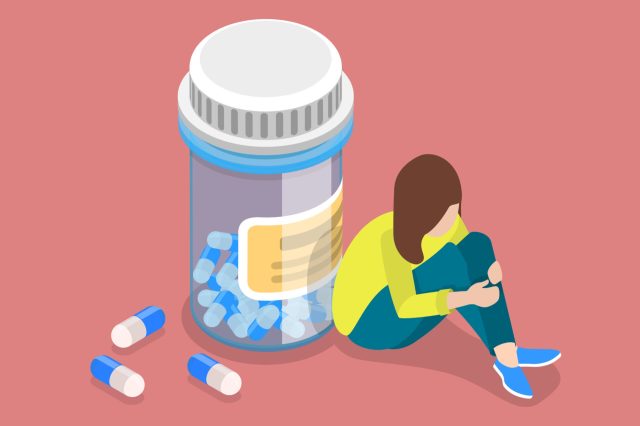Course Summary
Practice Level: Intermediate
Substance use disorders and depressive disorders are highly comorbid—about 17 million Americans have an alcohol use disorder, 7 million have other drug use disorders, and among this combined population the rate of major depressive disorder (MDD) is about 32%, a percentage that has remained largely the same in the last several years (Carey, 2018; Hunt et al., 2020). Importantly, the division of service provision between mental health care and substance use care confounds effective care, as specialists in each area often lack current knowledge in the other and care facilities may organize separately, or as silos, around these disorders creating barriers and disjointed care. In particular, substance use care providers may have licensing and education requirements that do not require much knowledge of depressive symptoms, including symptom identification, care of symptoms, and how these symptoms may interact with substance use concerns.
This learning material offers an understanding of depressive symptomatology in the context of substance use as well as SUDs, and in contrast to depressive disorders. Throughout the learning material the connection between certain symptoms of depression and various phases of substance use are pointed out, along with the ways that depression symptoms can affect recovery, and attempts at recovery from SUDs, and/or change the client’s relationship to substances. This course also explores the effect of depressive symptoms on treatment participation and engagement and considers effective clinical interventions, treatment settings, and specific cultural needs of clients when discussing assessment and treatment options. Case examples offer illustrations of how mental health providers can apply effective assessments and interventions and provide opportunities for learners to connect the learning material to their clinical practice.
Course Format
This course contains downloadable online lessons (PDF) and a practice test. When you’re ready, purchase the course by clicking the “Add To Cart” or “Enroll” button. This will let you take the test, complete the course evaluation and receive your certificate for CE credits.
Learning Objectives
1. Differentiate experiencing depressive symptoms from the presence of a depressive disorder.
2. Explain the relationship between substance effects and depressive symptoms.
3. Describe the effect of depressive symptoms on substance use recovery and treatment.
4. Recognize the benefits and limitations of varied treatment settings on clinical work with substance use and/or depressive symptoms.
5. Identify cultural and demographic considerations for assessing and treating depressive and SUD symptoms.
6. Explain effective interventions for depressive symptoms in the context of substance use treatment.
Course Syllabus
Introduction
Depressive Symptoms and Substance Use
- Depressive Symptoms and Depressive Disorders
- Suicidality and Screening
- Clinician Beliefs
- Substance Use Versus Substance Use Disorders
- Depressive Symptoms: Effects on Substance Use Recovery
- Interactions Between Symptoms
Clinical Considerations
- Treatment Setting
- Cultural and Demographic Considerations
Screening and Assessment
Treatment Planning and Intervention
- Cognitive Approaches
- Belief Approaches
- Affective Approaches
Summary
References
Authors
Jessie Timmons, LCSW
Jessie Timmons, LCSW, is a seasoned therapist and teacher of social work, as well as a practiced advocate for cultural humility and inclusive advocacy. She is a former faculty member of Temple University’s School of Social Work and is a current board member, having served two years as the board president, for the Pennsylvania Society for Clinical Social Work (PSCSW). Her teaching and professional development have focused on ethical practice and in particular on making inclusiveness and affirmative advocacy an integral part of the ethical practice of social work and social work education.
Accreditation Approval Statements
CE4Less.com is approved by the American Psychological Association to sponsor continuing education for psychologists. CE4Less.com maintains responsibility for this program and its content.
CE4Less.com, provider #1115, is approved as an ACE provider to offer social work continuing education by the Association of Social Work Boards (ASWB) Approved Continuing Education (ACE) program. Regulatory boards are the final authority on courses accepted for continuing education credit. ACE provider approval period: 08/08/21-08/08/24. Social workers completing this course receive 3 clinical continuing education credits.
CE4Less.com has been approved by NBCC as an Approved Continuing Education Provider, ACEP No. 6991. Programs that do not qualify for NBCC credit are clearly identified. CE4Less.com is solely responsible for all aspects of the programs.
Courses have been approved by CE4Less.com, as a NAADAC Approved Education Provider, for educational credits. NAADAC Provider #91345 CE4Less.com is responsible for all aspects of the programming.
We are committed to providing our learners with unbiased information. CE4Less never accepts commercial support and our authors have no significant financial or other conflicts of interest pertaining to the material.


